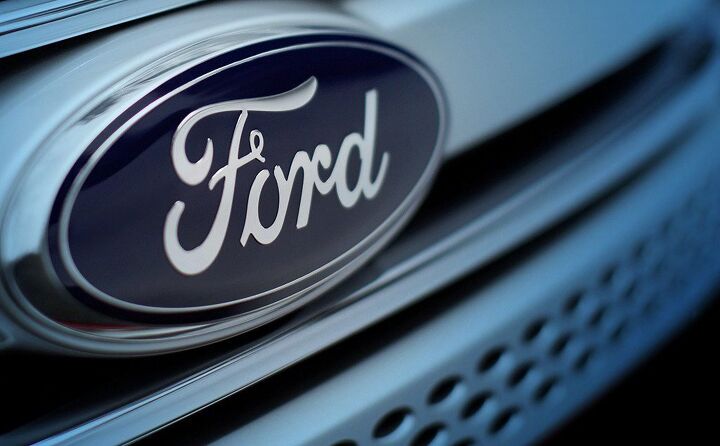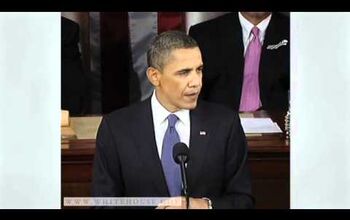Ford, BMW Planning Job Cuts In U.S.

With a large number of automakers pinching pennies these days, it’s easy for the details of various restructuring plans to fall down the memory hole. For example, Ford has been engaged in an ambitious cost-cutting program since 2018. The $11-billion plan was said to take anywhere from three to five years to complete, requiring legitimate sacrifices at the company — including the discontinuation of all sedans in the United States, ending operations in Russia, closing facilities in Europe, and rolling layoffs around the globe.
Ford has actually accelerated its timeline to see how much it can get done before 2021, resulting in the elimination of 7,000 salaried positions globally last year. The company has decided to end another 1,000 salaried positions in the United States.
According to Bloomberg, the latest round of cuts are unrelated to financial complications stemming from the pandemic. They’re just another saga in the company’s extensive restructuring program, with sources suggesting an official announcement by the manufacturer should be made within a week or so.
From Bloomberg:
Ford is in the midst of a sweeping reorganization as it seeks to reverse declining fortunes and achieve what CEO Jim Hackett calls financial “fitness.” The company expects to report a full-year operating loss for the first time in a decade.
Last year, Ford closed plants and eliminated thousands of jobs in Europe, where it has been losing money. In North America — the automaker’s most profitable region thanks to F-Series pickups — the cutbacks are smaller and are expected to come in the form of voluntary buyouts. They are in addition to 2,300 previously announced salaried job reductions in the U.S. during Hackett’s tenure.
BMW has likewise decided to trim down its workforce in the United States. Reporting from Automotive News indicates these are related to COVID-19 , however. “The effects of COVID-19 are far-reaching,” BMW of North America CEO Bernhard Kuhnt wrote in letter to dealers that was intercepted by the outlet. “Given the reduced size of the business, we now need to … re-scale our business across the company accordingly.”
Ford outperformed expectations in the second quarter by only posting a loss of $1.9 billion (pre-tax and interest) instead of the $5 billion it had predicted during the start of the pandemic. Meanwhile, BMW’s Q2 showing was worse than expected. The smaller automaker found its operating profits $790 million in the red as sales in the first half fell by 28 percent against the previous year. While both anticipate the rest of 2020 to be a tad more merciful, neither expecting their year-end reports to be loudly celebrated by investors.
For most automakers, the rest of this year will be all about seeing how well things can be improved to reduce the ugliness that has to go into their end-of-year reports, while at the same time ensuring 2021 kicks off with some momentum.
[Image: Image: Ford Motor Co.]

A staunch consumer advocate tracking industry trends and regulation. Before joining TTAC, Matt spent a decade working for marketing and research firms based in NYC. Clients included several of the world’s largest automakers, global tire brands, and aftermarket part suppliers. Dissatisfied with the corporate world and resentful of having to wear suits everyday, he pivoted to writing about cars. Since then, that man has become an ardent supporter of the right-to-repair movement, been interviewed on the auto industry by national radio broadcasts, driven more rental cars than anyone ever should, participated in amateur rallying events, and received the requisite minimum training as sanctioned by the SCCA. Handy with a wrench, Matt grew up surrounded by Detroit auto workers and managed to get a pizza delivery job before he was legally eligible. He later found himself driving box trucks through Manhattan, guaranteeing future sympathy for actual truckers. He continues to conduct research pertaining to the automotive sector as an independent contractor and has since moved back to his native Michigan, closer to where the cars are born. A contrarian, Matt claims to prefer understeer — stating that front and all-wheel drive vehicles cater best to his driving style.
More by Matt Posky
Latest Car Reviews
Read moreLatest Product Reviews
Read moreRecent Comments
- ShitHead It kicked on one time for me when a car abruptly turned into my lane. Worked as advertised. I was already about to lean into the brake as I was into the horn.
- Theflyersfan I look at that front and I have to believe that BMW and Genesis designers look at that and go "wow...that's a little much." Rest of the car looks really good - they nailed the evolution of the previous design quite well. They didn't have to reinvent the wheel - when people want a Mustang, I don't think they are going to cross-shop because they know what they want.
- Theflyersfan Winters go on around Halloween and Summers go on in late March or early April. However, there were some very cold mornings right after the summers went on that had me skidding a bit due to no grip! I do enough (ahem) spirited driving on empty hilly/mountain roads to justify a set of sticky rubber, and winters are a must as while there isn't much snow where I am (three dustings of snow this entire winter), I head to areas that get a bit more snow and winter tires turns that light, RWD car into a snow beast!
- SCE to AUX My B5.5 was terrible, but maybe the bugs have been worked out of this one.
- Zerofoo 5-valve 1.8T - and OK engine if you aren't in a hurry. These turbocharged engines had lots of lag - and the automatic transmission didn't help.Count on putting a timing belt on this immediately. The timing belt service interval, officially, was 100,000 miles and many didn't make it to that.

































Comments
Join the conversation
So much for MAGA Again
It is a good opportunity for Cadillac to take market share from BMW while BMW entered the path of sorrow.